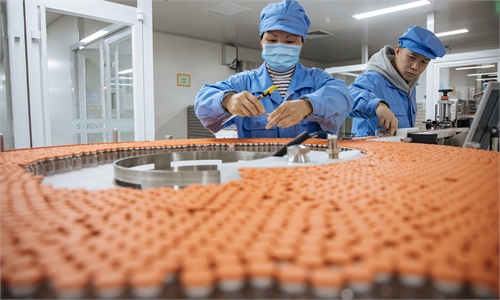China to offer $3b to developing countries for COVID-19 response: Xi at Global Health Summit
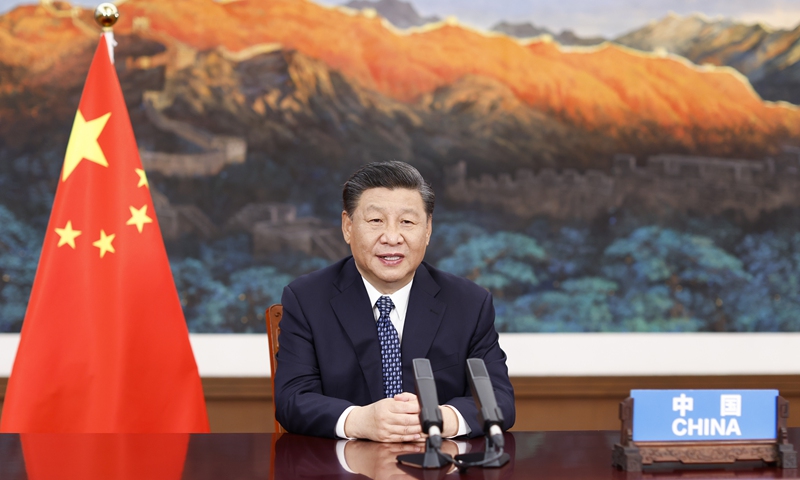
Chinese President Xi Jinping attends the Global Health Summit and delivers a speech via video in Beijing, capital of China, May 21, 2021.Photo:Xinhua
Xi made the remarks during a speech at the Global Health Summit via video link from Beijing.
The summit was a special event in Rome and organized by Italy, the G20 Presidency of 2021, and the European Commission.
Xi said China has already supplied 300 million doses of COVID-19 vaccines to the world and will provide more, and China is fully implementing the G20 Debt Service Suspension Initiative for Poorest Countries and has so far put off debt repayments exceeding $1.3 billion, the highest deferral among G20 members.
China has provided $2 billion in assistance for the COVID-19 response and economic and social recovery in developing countries, and have sent medical supplies to more than 150 countries and 13 international organizations, providing more than 280 billion masks, 3.4 billion protective suits and 4 billion testing kits to the world, Xi said.
China supports its vaccine companies in transferring technologies to other developing countries and carrying out joint production with them, Xi said.
In his speech, Xi urged G20 members to shoulder responsibilities in global cooperation against the virus, and he made five proposals.
We must tide over this trying time through solidarity and cooperation, and firmly reject any attempt to politicize, label or stigmatize the virus, he said.
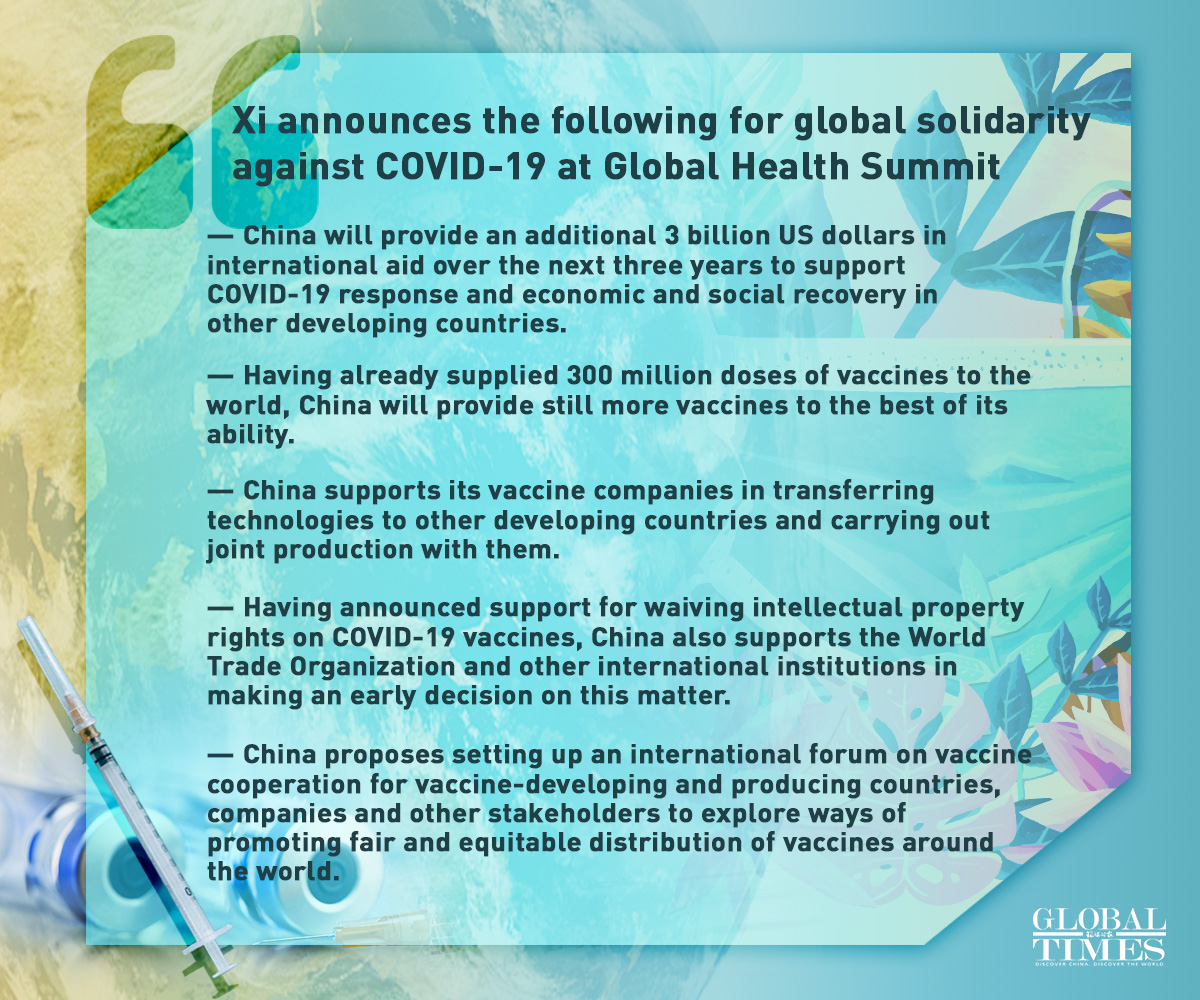
Graphic: GT
Transferring technologies by vaccine companies to other developing countries or technology cooperation advocated by China is much more crucial than the US' empty talk of waiving intellectual property rights, Lü Xiang, a research fellow at the Chinese Academy of Social Sciences, told the Global Times on Friday.
US President Joe Biden did not attend the summit, with Vice President Kamala Harris representing the US.
Having intellectual property does not necessarily mean a country has the capability to produce vaccines, and cooperation in technologies, materials and personnel is more important, which enables such capability, Lü said.
Xi captured the real focal point of global vaccine cooperation. It will help other developing countries that lack the conditions to produce vaccines themselves, and it shows China's accountability as the most populous country and world's second largest economy, he said.
By putting off debt repayments for developing countries, China understands the pain other developing countries are going through.
So putting off debt repayments may be just the beginning. China will do more for developing countries in the future, much more than developed nations that only pay lip service, Lü said.
Zhuang Shilihe, a Guangzhou-based immunologist closely studying COVID-19 vaccines, told the Global Times that China may also donate more vaccines through COVAX after the WHO grants emergency approval to China's Sinovac vaccine, which the WHO is likely to announce in a few days.
Leaders of the world's 20 largest economies discussing the joint response to the gravest global public health crisis in a century highlighted the significance of multilateralism and unity in the global COVID-19 battle, Chinese observers said.
Observers urged G20 members to reject divisive political maneuvering during cooperation.
"As long as there is a crisis, countries like the US are so used to utilizing it to attack its rivals, provoking a political warfare. It is their tradition to play dirty and they will hardly stop doing so. That's why we must raise our voice against it," Lü said.
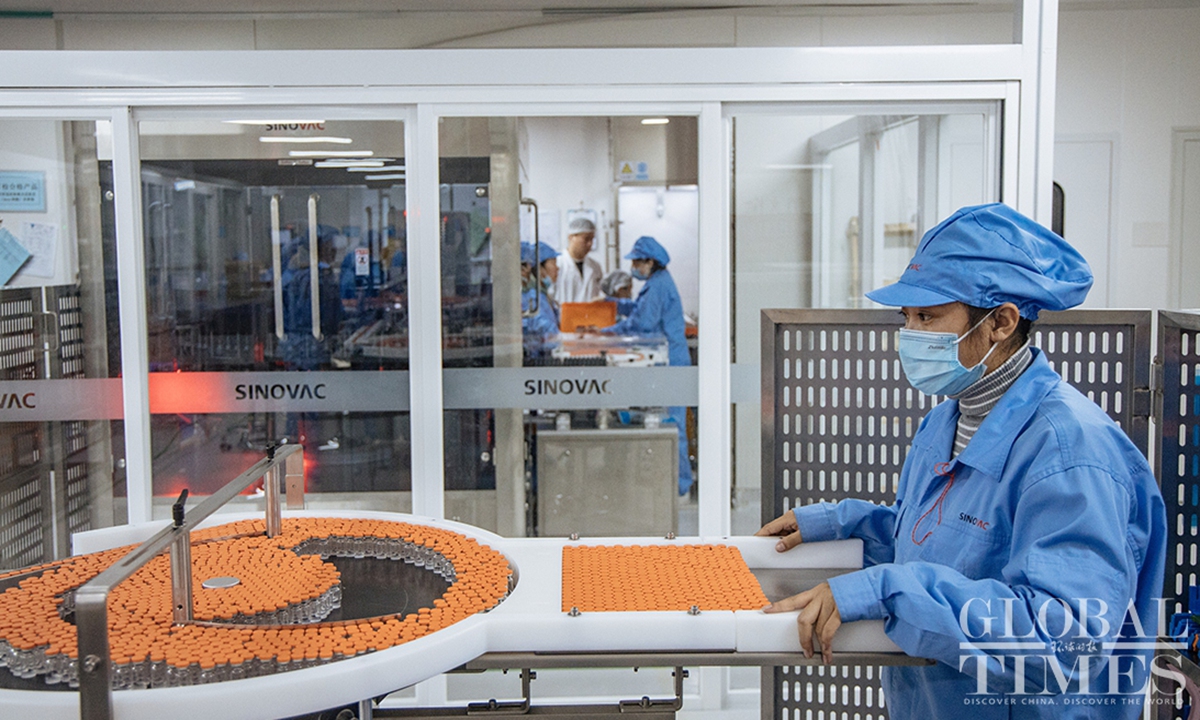
Photo: Li Hao/GT
Localized vaccine production
The summit approved a document, called the Declaration of Rome. Reuters reported the joint declaration showed that the summit would call for voluntary licensing and technology transfers to boost vaccine production.
A similar mechanism has been used in Africa to improve the supply of AIDS medicines.
Chinese observers said voluntary licensing was far from enough to help developing countries, especially those in Africa, to get a vaccine.
Of the 1.4 billion doses of COVID-19 vaccine administered to date, only 24 million doses -- less than 2 percent - have reached Africa, according to the UN.
Localized production was the most efficient way for developing countries with large populations to acquire vaccines, Lü said, urging big powers such as the US to immediately lift its embargo on ingredient exports and offer transport, store equipment, technology and technicians to help developing countries produce vaccines.
"Joe Biden, please don't just pay lip service, get it done," Lü said.
China has been supplying vaccines to nearly 40 African countries, and China is the largest supplier of vaccines to Africa, according to the Chinese Foreign Ministry.
China has also helped African countries with localized production. Egypt started producing China's Sinovac COVID-19 vaccine recently, becoming the first country in Africa with COVID-19 vaccine production capacity. Egypt will produce 40 million doses of Sinovac's vaccine in the first year.
Jiang Chunlai, a professor at Jilin University's School of Life Sciences, told the Global Times that for some African countries with low production capacity or low biosafety conditions, international organizations, NGOs and charity groups should step in to purchase WHO-approved vaccines and transport them to those countries.
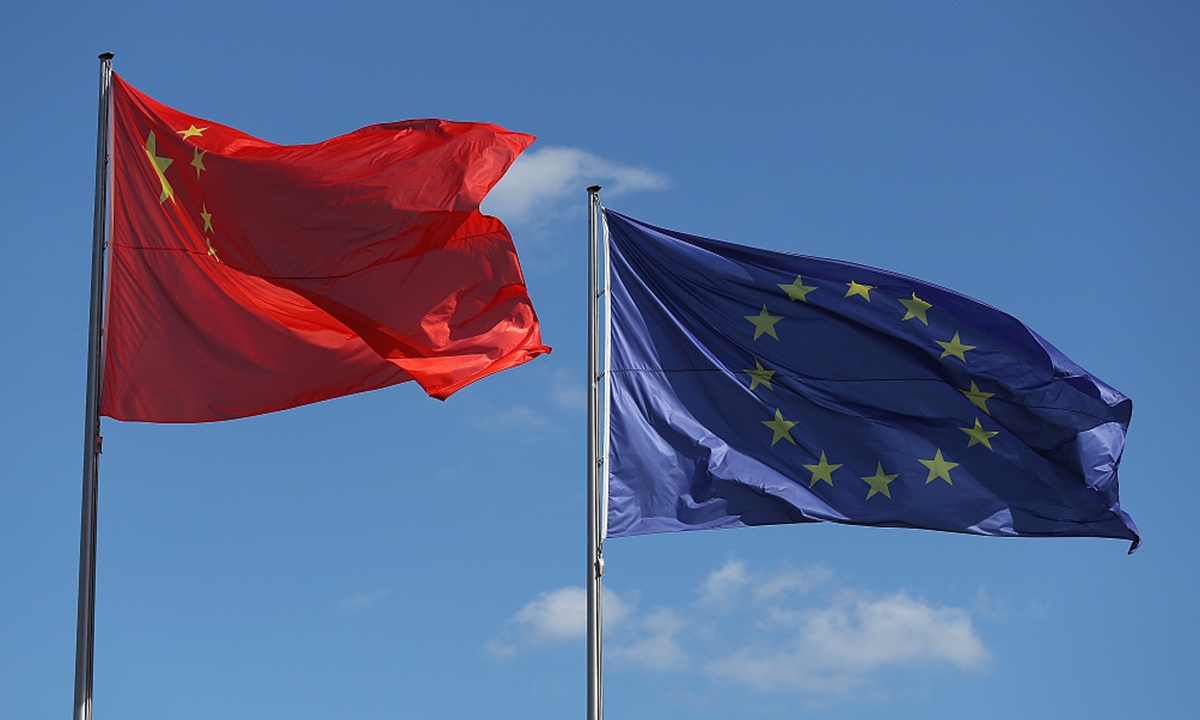
China EU Photo:VCG
Cooperation conforms to EU interests
Major EU members and China jointly participated in the Global Health Summit of the G20 on Friday, just one day after the EU parliament froze the ratification of the China-EU investment deal, called a major "deterioration" of China-EU relations by some Western media.
Chinese observers believe it shows that the governments of EU member states have clearly seen that practical cooperation with China is what conforms to the interests of Europe, as the two sides share a greater consensus on multilateralism and jointly tackling world challenges, including public health issues, despite political differences.
More institutions and governments in the EU will eventually realize that using so-called human rights issues to disrupt cooperation with China in fields such as investment and trade will make the EU "fall into the trap" of the US, which has been luring Europe to contain China, and may put the bloc's true interests at stake, Chinese observers said, noting the EU is likely to adjust its relations with China later this year.
The EU cannot have a real economic recovery without China, and COVID-19 cooperation cannot happen without China either, analysts said.
The summit is one of the many multilateral fields where China and Europe are closely collaborating, and the two sides also have enormous cooperative space in climate change, safeguarding regional and global security, as well as preventing the proliferation of nuclear weapons.
The meeting reflects the greater consensus of the two on upholding multilateralism, international order and system and jointly tackling global challenges, Cui Hongjian, director of the Department of European Studies at the China Institute of International Studies, told the Global Times on Friday.
The European parliament cares only about values, but governments of EU members care more about people's livelihoods and their economies, and they know cooperation with China in realistic areas is in line with the interests of Europe, Cui said, adding "after all, you cannot feed people with human rights."
China and the EU have engaged more at a multilateral level this year including on climate change and biodiversity despite bilateral political differences, which showed that China and the EU share more common ground than differences and they need more cooperation than competition, observers said.
It takes time for Europe as a whole to realize that China as a partner in various fields cannot be replaced and letting political differences infiltrate the economic sector will put Europe's true interests in danger. The EU will eventually figure that out, "probably in the second half of this year especially after several multilateral meetings including the UN Biodiversity Conference in Kunming in October," Wang Yiwei, director of the Institute of European Studies at Renmin University of China, told the Global Times.


